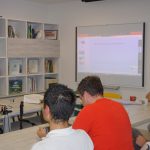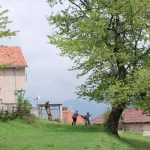A network of national institutions and organizations, including the Macedonian Ecological Society, Botanical Garden Skopje, Hydrobiological Institute Ohrid, Educational Centre Negrevo, Narodna Tehnika, the National Park Galichica, and more recently, the BioTechnology Laboratory managed by the City of Skopje and Drisla, have come together to form the Experiential Learning Network.
The network was established with support from UNICEF and funded by Sweden to create additional opportunities for children to learn about the environment and climate change through experiments, hands-on activities, and critical reflection on their experiences. Here are some of the workshops being offered.
Plant Reproduction

UNICEF North Macedonia / Acevski / 2024
Reproduction is one of the fundamental properties of all living organisms. This trait enables the continuation of a species across generations. However, environmental degradation and climate change can cause environmental stress that can affect plant reproduction and propagation.
Open to students from grades 1 to 9, this engaging 3-hour workshop can accommodate up to 30 participants. Its primary aim is to facilitate an in-depth understanding of the fascinating stages of plant reproduction, while also exploring the interplay between cells and their environment.
Teachers see a more detailed description of the workshop and register to give your students a new fun learning experience.
Plant Nutrition
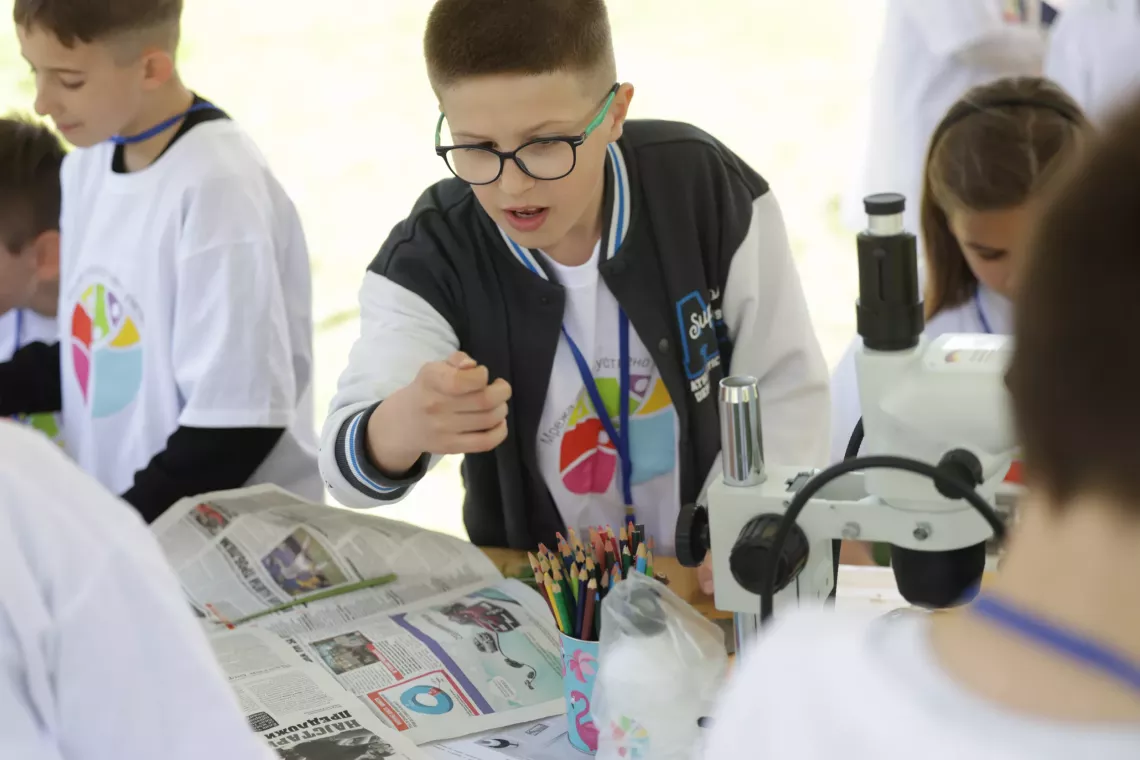
UNICEF North Macedonia / Acevski / 2024
Plants are like little chefs. They make their own food using sunlight, water, and air. The green parts of the plant, like their leaves, act as solar panels. They soak up the sun’s energy and mix it with water and carbon dioxide. Then, like magic, they create yummy stuff called starch. And guess what? As a bonus, they also give us fresh oxygen to breathe!
Open to grades 1 to 9 the students, the 3-hour laboratory workshop for 30 participants gives children an opportunity to learn that plants need certain things to thrive. Throughout the workshop, students explore the structures within plant cells, uncovering the specialized systems responsible for transporting water and nutrients throughout the plant. Additionally, they engage in a hands-on activity using a special technique to identify the diverse array of colors present within plants.
Teachers see a more detailed description of the workshop and register to give your students a new fun learning experience.
Living Organisms and their Environment
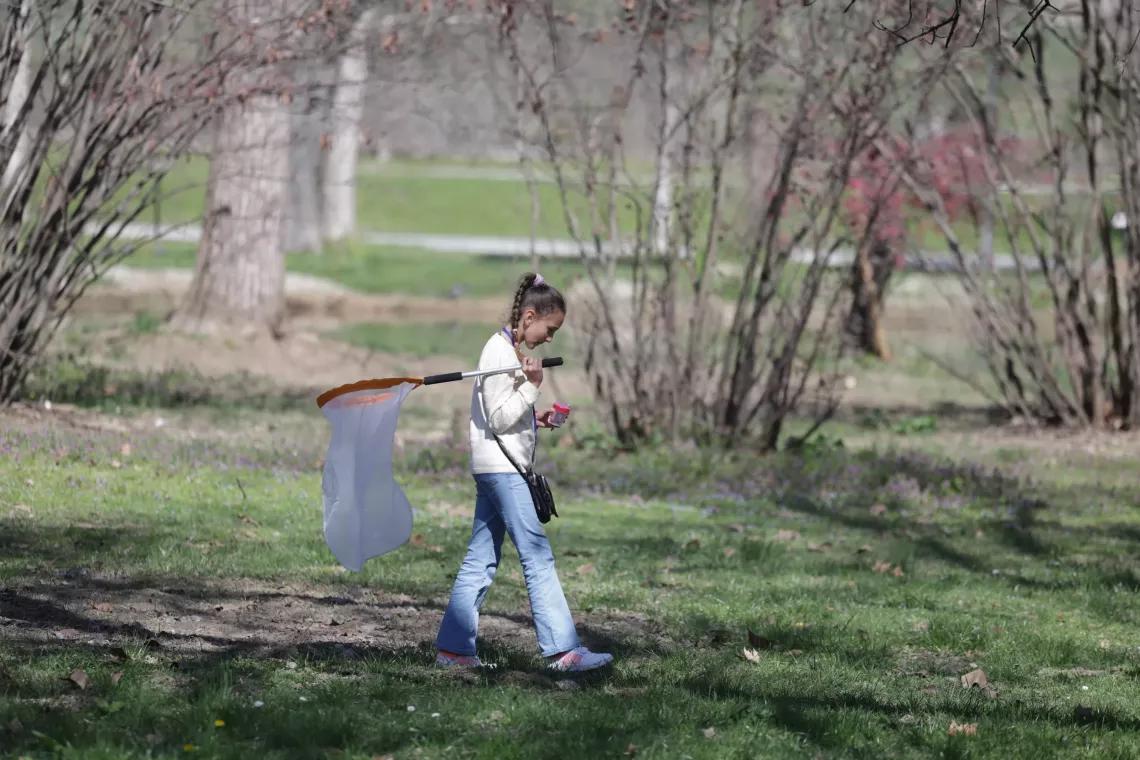
UNICEF North Macedonia / Acevski / 2024
Aquatic ecosystems are water-based environments where living organisms interact with both the physical and chemical features of their surroundings. These aquatic organisms rely on water for food, shelter, reproduction, and other essential activities. Each species adapts to its specific role within the ecosystem, occupying a distinct place through adaptation and interaction.
For students in grades 1 to 9, the 3-hour workshop provides an opportunity to explore various types of aquatic habitats. They learn to measure and collect data related to physical and chemical parameters. They also collect samples for laboratory analysis and compare results from their research.
Teachers see a more detailed description of the workshop and register to give your students a new fun learning experience.
The Home of the Fly Trap
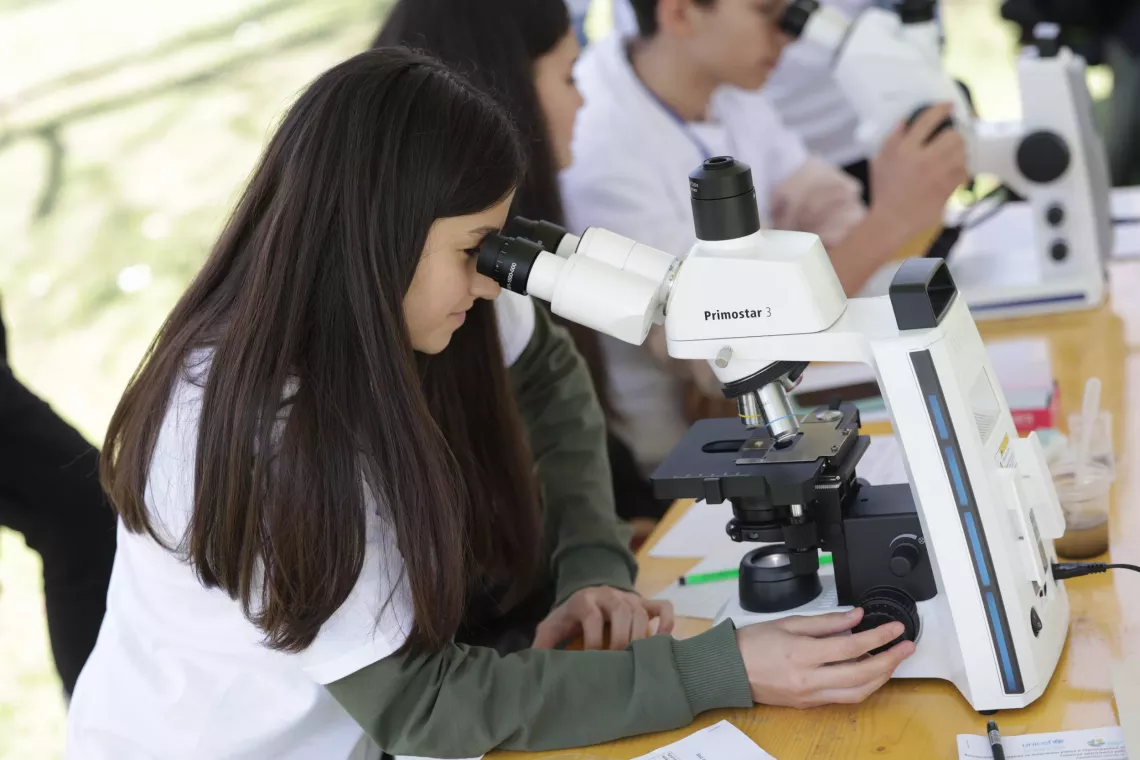
UNICEF North Macedonia / Acevski / 2024
Peatlands, those captivating ecosystems, harbor layers of partially decayed plants and other hidden organisms. For students in grades 1 to 9, a 3-hour workshop offers a chance to explore various habitats. Specifically, they’ll delve into the world of peatlands as an ecosystem, observing nature, recording physical factors, understanding pressures and threats, and exploring the impact on both macroscopic animal and plant species that live there.
Teachers see a more detailed description of the workshop and register to give your students a new fun learning experience.
Explore the Marsh Ecosystem
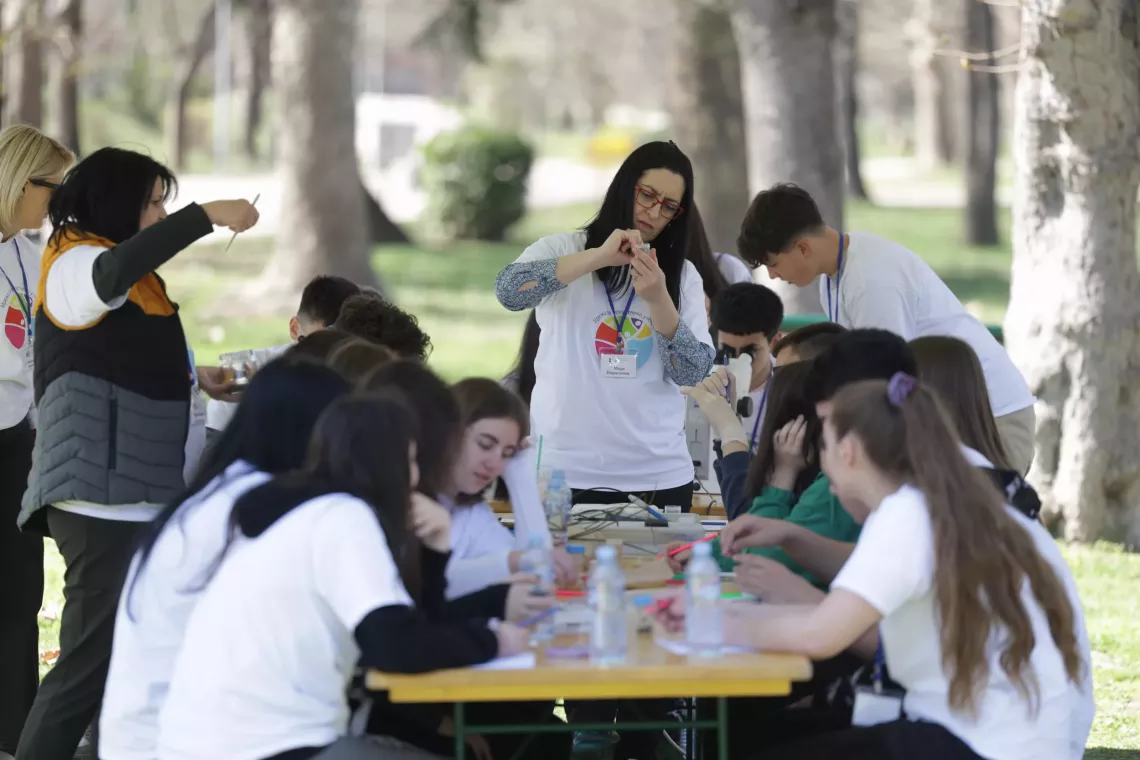
UNICEF North Macedonia / Acevski / 2024
Imagine a world where water and land intertwine, where grasses sway in gentle breezes, and where hidden creatures thrive. This is the realm of marshes—a captivating type of wetland that beckons us to explore its secrets.
For students in grades 1 to 9, during the 3-hour workshop students learn about this aquatic habitat, and its living organisms and become familiar with how they are affected by climate change and environmental degradation. They get to observe, collect, and analyze different macroscopical species of animals and plants living in and around the marsh ecosystem and much more.
Teachers see a more detailed description of the workshop and register to give your students a new fun learning experience.
Young Researchers
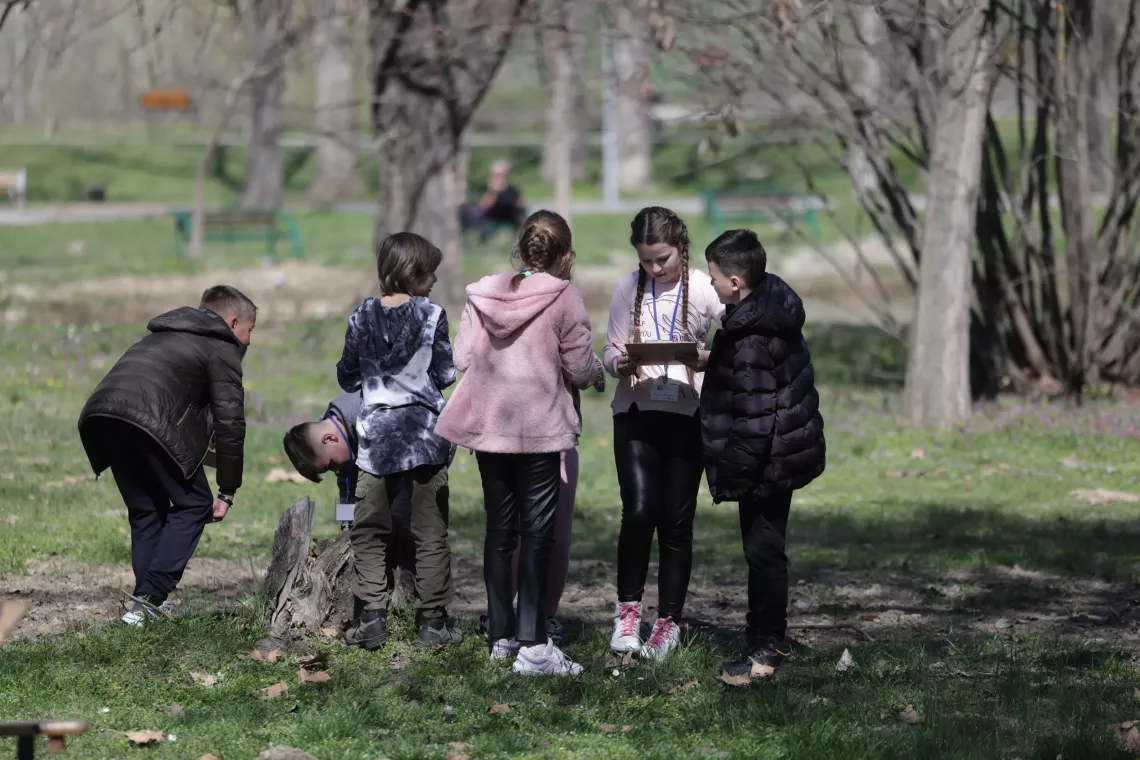
UNICEF North Macedonia / Acevski / 2024
The environment unites us all. Biodiversity, the incredible variety of life on our planet, encompasses not only the diverse species of plants, animals, fungi, and microorganisms but also the myriad ecosystems and habitats that sustain them. Unfortunately, climate change poses a threat to this delicate balance. Species, finely tuned to specific climates, struggle to adapt to changing temperatures.
For students in grades 1 to 3, the 3-hour workshop provides an opportunity to explore the natural and cultural treasures of Galichica National Park. They learn about species, habitats, and the vital role of park rangers.
Teachers see a more detailed description of the workshop and register to give your students a new fun learning experience.
Young Rangers
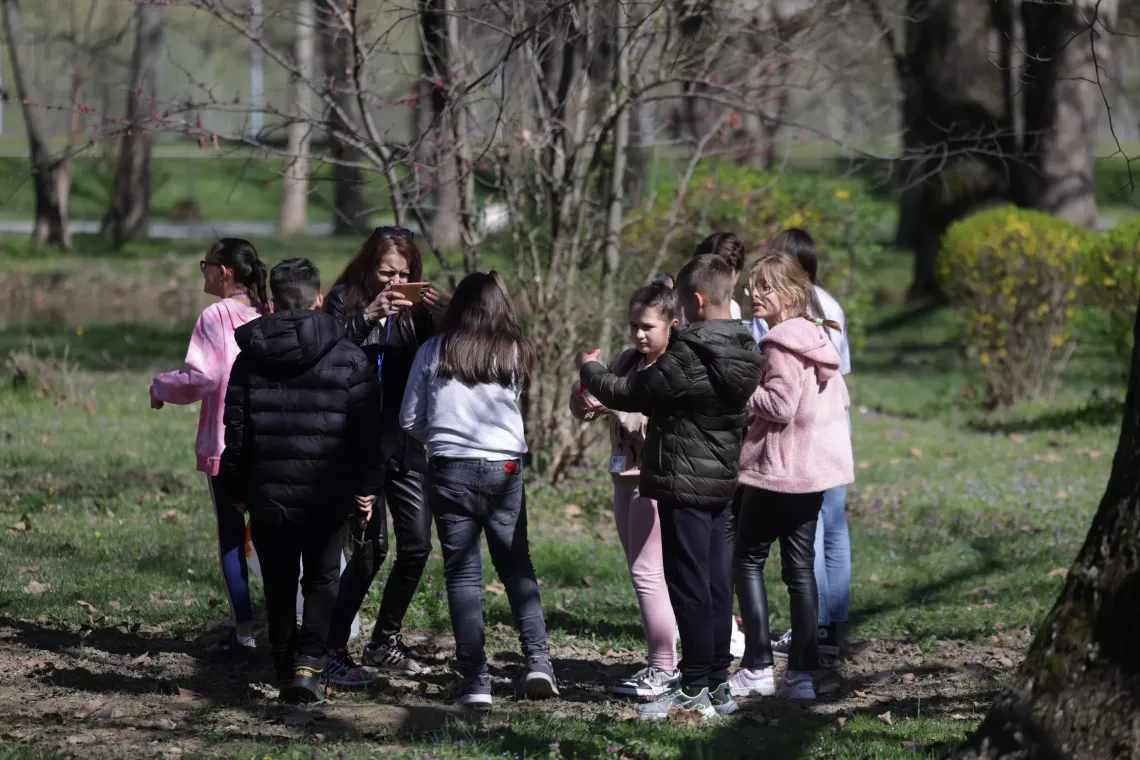
UNICEF North Macedonia / Acevski / 2024
Galichica National Park emerges as a vibrant ‘hotspot’ of biological diversity, not only within Europe but also globally. Within its compact expanse, this park distinguishes itself from other areas of similar size by harboring an extraordinary wealth of habitats and species.
During the 3-hour workshop for students in grades 4 to 6, participants will have an opportunity to delve into the heart of Galichica National Park—an enchanting realm where nature and culture intertwine. Guided by seasoned park rangers, they identify and explore different species and habitats, and the vital role of park rangers. They use all their senses and are inspired to think about the importance of each organism in the environment.
Teachers see a more detailed description of the workshop and register to give your students a new fun learning experience.
Eco-ambassadors

UNICEF North Macedonia / Acevski / 2024
In another workshop for students in grades 7 to 9, during the 3-hour workshop students will follow a 400-meter track starting from the entrances to the National Park Galichica leading through an old basilica and ending with an outdoor classroom. Guided by seasoned park rangers, they identify and explore different species and habitats, and the vital role of park rangers. They use all their senses and are inspired to think about the importance of each organism in the environment.
Teachers see a more detailed description of the workshop and register to give your students a new fun learning experience.
Green energy – energy self-sufficient house

UNICEF North Macedonia / Acevski / 2024
At the energy independence workshop, students delve into the fascinating world of renewable resources, harnessing the sun’s rays, and envisioning a cleaner, brighter future. For primary students in grades 4-9 and secondary school students, the workshop invites them to explore the principles of green energy production within the context of an independent green-energy house. They get to roll up their sleeves and get hands-on! They construct a functional model—a self-sufficient house powered by green energy, complete with solar panels, photovoltaics, a wind power plant, a water circuit, a multi-source energy system, and even a biodigester.
Teachers see a more detailed description of the workshop and register to give your students a new fun learning experience.
The Experiential Learning Network is part of the UNICEF initiative “Empowering children and young people to act as change agents to reduce the vulnerability of climate change to communities” funded by Sweden.
Source: UNICEF.org


